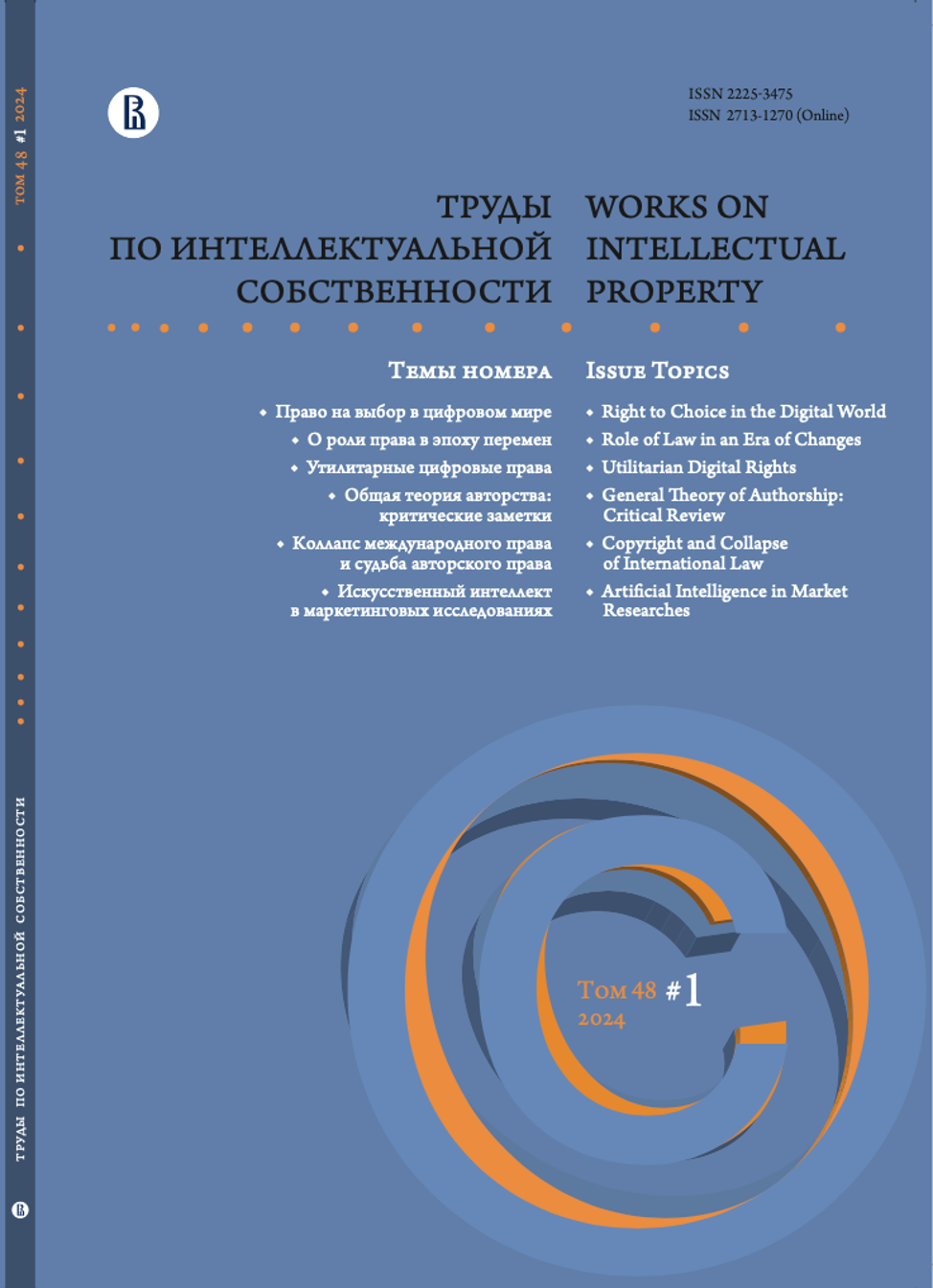ABOUT THE PRIVILEGE OF CREATIVITY THAT DOESN’T EXIST (AND THE QUESTIONS THAT FOLLOW FROM IT)
Abstract
Russian civil legislation unambiguously says that only a human being (by whose creative work the result of intellectual activity was created) is author of this result. There is no direct indication in international conventions, but the same is implied. The legislative acts do not assume any other way of creation. Thus, the privilege of creativity is reserved for a human being. This approach was once in line with natural scientif-
ic views. Science considered the ability to create to be unique to humans; it was seen as a fundamental distinction between humans and animals. Consequently, the norms of law were constructed in accordance with this paradigm. However, modern natural science recognises the capacity for creativity in animals. The new evidence makes it increasingly difficult to deny the close similarities between humans and other animals, including in the area of intelli- gence and creativity. The article demonstrates specific examples of creative abilities of non-human animals and the results of intellectual activity created by them. For greater clarity, the author com- pares individual works created by animals with individual works created by humans. Attention is also paid to natural science works, which help to better understand the changes taking place in science. The author concludes that the life situations discussed in the article cannot be accommodated within the existing legal forms. In this regard, intellectual property law is faced with the question of conceptual choice of its future path: whether it will develop in the same line with natural sciences; whether the achievements of natural sciences will be completely ignored by law; or, perhaps, the choice will be made in favour of preserving the human privilege not of creativity, but of legal protection of the results of creativity. In a broader sense, the discovery of the ability to create in animals (and the disappearance, following the attribute of “intelligence”, of another attribute that was previously thought to distinguish humans from the rest of the animal world) adds new colours to the discussion on the legal status of animals. The fact that animals are recognised as having not only intelligence, but also the ability to create requires reflection by legal science and, perhaps, is one more argument “for” the question of the expediency of recognising new subjects of civil law and law in whole.


